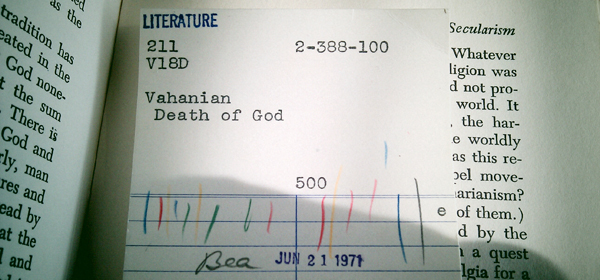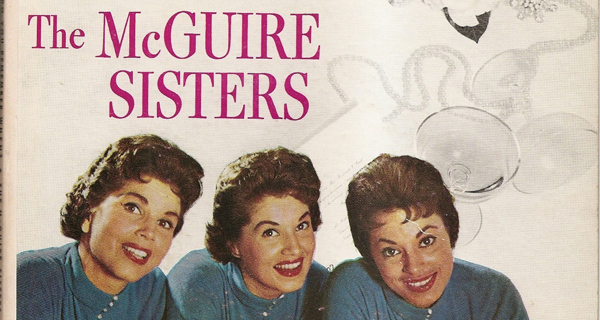Matthew Simmons
Matthew Simmons lives in Seattle.
Matthew Simmons lives in Seattle.

Griffith Edwards, Oxford-educated MD and addiction specialist, invented alcoholism. In 1976.
That is to say, he and a cowriter named Milton Gross first published a description of Alcohol Dependence Syndrome in the British Medical Journal in 1976, making the whole darn thing official.
Edwards spent his life considering, studying, talking about, writing about, and helping others with addictions.
*
ALCOHOL in HISTORY: Edited Highlights READ MORE >

From Rick Strassman’s book DMT: The Spirit Molecule. This is the way a DMT test subject named “Willow” described her experience on the psychedelic. I’ve added emphasis to the sentence that struck me:
The other side is very, very different. There are no words, body, or sounds there to limit things. I first saw deep space, white with stars. Then there was this multidimensional experience starting. It was alive. It was the aliveness that I heard.
And here, a quote from Terence McKenna recently reTumbled by Tao Lin: READ MORE >
DIED Snippet: On September 14, chronic illness legal advocate Jennifer Jaff passed away. Her advocacy was a reaction to her own diagnosis with Crohn’s disease. Frankly, I don’t even know where to begin talking about the messy maze of health insurance and chronic illness or pre-existing conditions. But I thought this might be a fine place to link to Giant contributor Ken Baumann’s essay on his Crohn’s in Vice Magazine. (And to mention that they have his name spelled wrong in the byline.)(Also, this essay is not sexist.)
 Gabriel Vahanian, author of the book The Death of God: The Culture of Our Post-Christian Era, died on Saturday, September 8. He was 85.
Gabriel Vahanian, author of the book The Death of God: The Culture of Our Post-Christian Era, died on Saturday, September 8. He was 85.
He was not an atheist. He was a theologian and critic of what he referred to as “Religiosity,” Christianity that appealed broadly to his contemporary culture, that embraced faith without doubt, that was literal in its interpretations of the Bible, that was “trivial.” Here he reveals the death of God in the names we give God: READ MORE >

Dr. Thomas Szasz was a professor of psychiatry who spent much of his intellectual life critiquing psychiatry. He believed much of psychiatry was unscientific and should not be used to justify coerced detention in mental institutions and that diagnoses should not be allowed in courts of law. He was popular with libertarians (because he believed in body and mind self-ownership over state control of our relative psychiatric [un]hingedness) and, because he called psychiatry a “pseudoscience,” he was embraced by the Church of Scientology.
Because he called psychiatry a “pseudoscience,” he was embraced by the Church of Scientology. READ MORE >

A young, Southern California rapper who maybe went by the names Inkyy or Jew’Elz died in a car accident. According to the obituary in the UK’s Daily Mail (Online edition), Ervin McKinness (Inkyy/Jew’elz’s government name) had, moments before the car he was a passenger in ran into a wall after running a red light, tweeted the following:
It is not believed that Inkyy was driving the car 120 miles an hour or drifting corners, but that he and his friends were—as he self-reports—”drunk as fuck” when they hit the wall. Five people died. It was 1:20am. Another report said they were at Creekside Drive and Haven Avenue: here. This article has video from the scene. There is an iron fence south of the LDS church on the southwest corner. I’m fairly certain that’s the one shown in the video.
#FuckIt?
A question one can ask about Existentialism—whether it is life affirming or life denying—can, I think, also be asked about #YOLO (You Only Live Once). It depends, it seems, on who is hashtagging. There are certainly those who have embraced #YOLO as life affirming. As of Friday, September 14, 1885 people have RTed Inkyy’s unintentionally final words. Those folks seem to have embraced #YOLO as life denying.
Where will you stand? #FuckIt. I stand with life affirming.
Have a good weekend, everyone. If you’re drunk af, stay off the streets. Inkyy’s video “Dreams” after the cut. READ MORE >

A McGuire sister passed away last Friday. As the New York Times obit points out, the McGuire Sisters sang simple, traditional pop songs in contrast to the low, burbling, grinding roil of early rock and roll music. When the McGuire Sisters made a hit out of the song “Sugartime,” history’s greatest rock and roll performer, Jerry Lee Lewis, was marrying his cousin and putting out “High School Confidential.” But they have their charms.
I’m going to just go ahead and admit that I find something particularly distressing about the death of the member of a ’50s close-harmony singing group made up of sisters. Those acts took such pains to eradicate all but the subtlest differences between them in their presentation, worked so hard to let the collective subsume the individuals. (All with nearly the same hairstyle, in nearly the same dress, bantering with Perry Como with nearly the same wit and tone, singing a song with nearly the same notes.) And, sure, they don’t perform anymore. They are in their 80s. But one imagines they sing at home sometimes. And one imagines they hear the other two when they sing at home sometimes. And one imagines they might hear a change in one of their phantom sister voices.